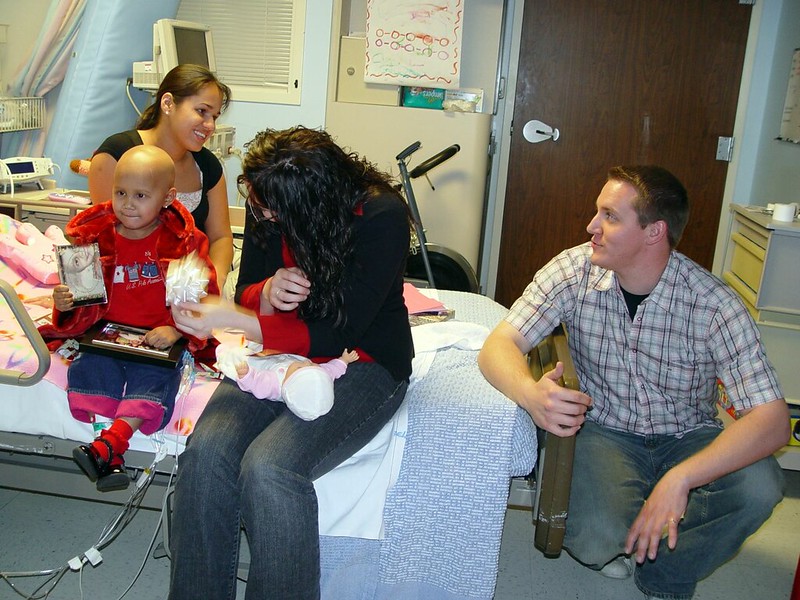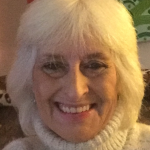
We enter this world on our own and we depart it on our own. For some, this is true; but for others, although the process of dying is a solitary, unique and personal one, there is no necessity to die alone without their hand being held and without having their loved ones around them.
In bygone days, death was expected and accepted. It was customary for family members to look after those who were at the end of their lives. They gathered together and took turns to care for the dying relative and to hold each other’s hands in the last weeks and days. A ‘good death’ was gentle, loving and natural, and the process was supported by the presence of loved ones.
Death in current times has almost become unacceptable and is often viewed as an unnatural occurrence. It has become a fearful, unwanted, taboo subject. Death is no longer a socially supported and natural process. Instead, it appears to have become a planned, premeditated medical event. Often premature and unnatural, a lonely forced pharmaceutical death appears to have become the norm. Likewise, births are now planned or induced and take place in cold, clinical rooms or operating theatres surrounded by equipment and pharmaceuticals. Have medical deliveries and end-of-life pathways replaced the solemnly beautiful processes of being born and dying? Are medical professionals playing God?
Long gone are the days when at 2 pm, in most British hospitals, the ward doors would open and a nurse would welcome family and friends to visit their loved ones. Laden with magazines, televisions (yes, portable televisions at the end of beds was a common sight), the obligatory grapes, fruit and armfuls of beautifully fragranced flowers, which would be placed in tall plastic vases, visitors entered the ward eagerly to check up on their loved ones.
A handbell, rung by the nurse in charge, would often sound at 4 pm to signal the end of visiting. There were strictly two visitors per patient at a time and there was no sitting on the pristine beds. Then, between 7 pm and 8 pm, there would be evening visits, and as the lights dimmed, patients settled much better after having seen their loved ones.
Back then, visitors and family were welcomed with open arms. Not only were they the perfect tonic for patients, they were often keen to carry out some of the care: feeding the patient, helping with drinks, and most importantly, having a chat and catching up on how the rest of the family were. The best pick-me-up of all is to see a familiar friendly face. It’s a long, sometimes lonely day for a patient in a hospital, and visiting times were a welcome window of normality.
Visiting times were also very important for the nursing and medical staff. Any concerns from either relatives or staff could be aired and discussed openly and honestly over a cup of tea. Yes, you read that correctly: difficult conversations were always easier over a cup of tea. It was not an uncommon sight to see a medically fit patient awaiting discharge, or their family members, pushing the tea trolley or serving other patients. Goodness, that would not be allowed now! The real hospital regulators were the visitors. Medical staff were always kept on their toes, and nothing escaped the visiting family members and friends.
Today, visitors appear to be unwelcome. Family and friends are being restricted from visiting their loved ones, no-one is exempt, and visiting restrictions include child patients, babies and the dying. Hospitals seem to have become secure institutions, imposing in their appearance and guarded by uniformed security officers. Some patients are now being allowed to receive visits; however, that situation could change at any minute if a patient tests positive for Covid–19. It is at this point that you or your loved ones may find yourselves on your own, with only a phone to enable patients to contact family back home.
Not only does this cause severe anxiety for patients, it also causes huge stress and confusion for family, who feel helpless and isolated. For those who are suffering dementia, confusion or are unconscious, contact in this impersonal situation is negligible. Many patients with confusion and dementia will not be able to cope without familiar surroundings and known faces, and thus can become more disturbed and distressed. With strange noises, different routines, unfamiliar faces and voices, their environment becomes a sensory nightmare. Many relatives complain they cannot get hold of anyone on the wards and are left hanging on an ever-ringing telephone without answer.
Families left at home end up worried senseless, unable to get hold of anyone at the hospital to find out how their loved ones are. To compound this, decisions are taken without any family discussions, and relatives find themselves in confrontational exchanges with medical staff as they desperately try to make their wishes known. Some family members who are frustrated and concerned have been told to leave hospital premises, as they are accused of exhibiting aggressive behaviour. Some are even frogmarched out by security staff. Since when did sick people need guarding from their families by uniformed bouncers?
In 2023, patients who test positive for Covid–19 are put on Covid treatment protocols which ultimately often appear to lead to end-of-life care pathways being put in place without consultation from families. Many patients have Do Not Resuscitate (DNR) orders added to their file without notification. Others are finding out their loved ones have passed away without even being informed at the time. Families who were not allowed to be with their loved ones as they passed from this world are suddenly admitted to the ward straight after the death to collect possessions.
It makes no sense.
Even when at home, you are on your own in British healthcare now. As the NHS announces thousands more beds and hundreds more ambulances, you may be wondering where all these new beds are going to exist. The answer is that this means your own bed. To avoid patients being admitted to hospital, many will be cared for remotely at home. ‘Hospital at Home’ has been heralded as the solution to the lack of care in the community when hospitals seek to discharge elderly and vulnerable patients. Community care teams will be appointed to visit patients at home when necessary, while others will be looked after via video conferencing. Mental health vehicles will be dispatched to attend to patients who appear to be suffering from a mental illness, designed to relieve emergency 999 ambulances.
My recent UK Column interview with Roy Lilley, a former NHS Trust Chair, revealed many flaws in ‘virtual care’ arising from multiple factors including cost, access to care, and availability of trained community nurses. Many elderly and vulnerable patients do not have either the equipment or the knowledge to access video call apps or the internet at all to facilitate remote nursing. Can we expect excess deaths at home?
‘Fall teams’ will be sent to those who have fallen at home; every measure will be taken to prevent a hospital admission, and this work will be prioritised, leaving our most frail at home, often alone and scared. This will not just impact patients but their relatives too, as many find themselves having to take time off work or even relocate to care for their loved ones.
Human beings are social creatures who need other human beings in their lives, especially when they are at their most vulnerable. Physical human contact is often the difference between good health and poor health. Care and compassion will be replaced by computers and convenience, while common sense goes out of the window.
If you are on your own when healthy, it generally means you have assessed for yourself that you don’t need help from others. Being alone is normally a choice. Patients who are sick and who require hospital care need help from others; that is the reason they are in hospital. No-one wants to be in hospital. So understandably, most patients in hospitals feel scared, anxious, vulnerable and exposed.
This leads me to offer the following matters for readers’ consideration, hopefully ahead of their hour of need.
Are you prepared to be on your own? Are you prepared to be isolated from your family and friends? Are you prepared to leave your loved ones in the care of ‘Hospital At Home’? Are you comfortable knowing your relative is in a hospital or care home alone? Do you know who is caring for you or your loved ones?
Who are the new staff who are being recruited? Are they qualified? Do you know what medications you or family are being treated with? Do those who administer the medical care that we have become reliant on know what they are doing? Are they following their professional code of conduct?
Easing pressure within the NHS at the expense of increasing pressure in the community is, in my view, senseless and dangerous. The platitude that the NHS is safe will no longer suffice. The issue now is: Do you feel safe alone in the NHS? Do your family and friends feel safe alone in the NHS?
These are the questions we must all address with haste and honesty. Far too many patients are currently feeling neglected, vulnerable and scared for their lives. Hospitals should be places of sanctuary and safety, not ‘smart’ secure facilities, as they appear to be in 2023.
Do No Harm. Tender loving care is for everyone in healthcare.

